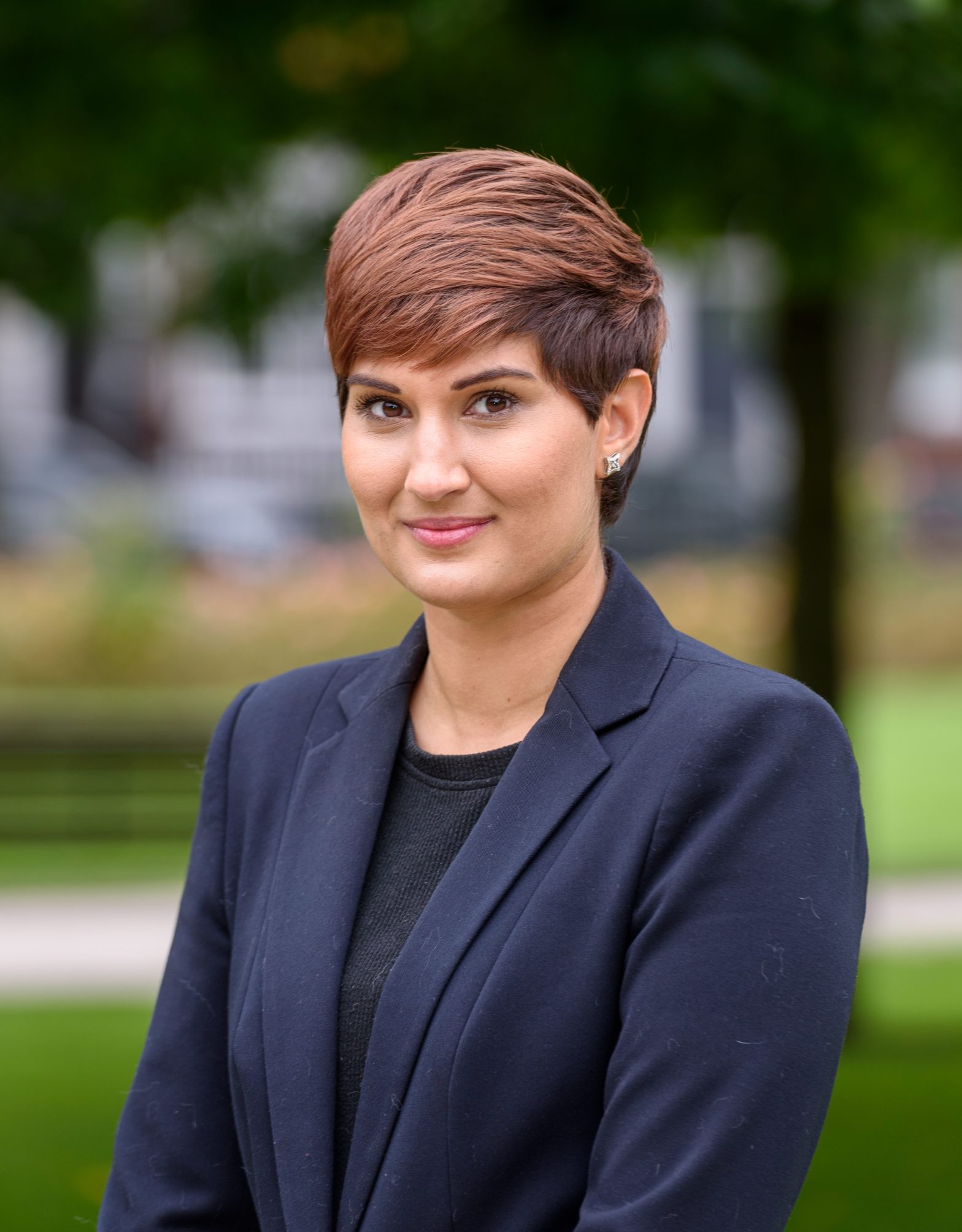
MEET AYESHA SMART – she’s the youngest ever person of colour to become a Crown Court judge.
Smart, 34, who is mixed race and has Sri Lankan Tamil heritage, said she is proud of her achievement and revealed to the Diversity Hub (DH) that she had faced difficulties at the beginning of her career.
She said the traditional view about what a Crown Court should look like is changing too.
Smart said it is quite possible to become a young Crown Court Judge – like herself – and efforts were being made to provide a more level playing field through initiatives such as the outreach scheme* run by the Judicial Appointments Office which she credits for her own stunning progression.
She explained: “There is an assumption that to get on the judicial ladder you have to have familial connections, have attended Oxford or Cambridge (Universities), or be a member of the upper echelons of society.
“However, the changes to the judicial appointment process have enabled more opportunity and equitable balance to support ordinary people, like me, to be afforded an opportunity to get into this profession.
“Now in a very diverse UK, it is clear that there is a need for all kinds of people to become judges to strengthen the judicial process and increase the perception of fairness,” she added.
When she first entered the law, it was a tough initiation.
“I’ve experienced difficulties professionally due to my ethnicity – some clients have not wanted me to represent them, despite my experience and expertise, due to my ethnicity.
“Others have made assumptions about my ability and expertise due to my differing cultural background.”
She feels the Judiciary is trying to address its own issues of Diversity and is making progress.
“They are making considerable efforts to keep up to modern times and the diverse society we now live in, although there are still some areas of unconscious bias, and prejudicial views to overcome.
“There is also work to be done on supporting those who have to juggle work and a family and the court’s factoring in commitments such as childcare, school runs and the like, which often fall to women.”
She feels the judiciary can and should provide more of a level playing field for women, and other groups who are not progressing at the same rate as more traditional candidates.
“The Judicial Appointment Commission run an outreach scheme targeted at those from diverse backgrounds who might not ordinarily have the confidence, background, or connections to put in a judicial application.”
On April 1, 2019, 3.6 per cent (about a 100 of total 2,769) of court judges were of Asian background. The Asian population makes up around 9.3 per cent of total population of the UK, according to the 2021 Census.
Smart initially trained as a doctor and her first professional position was as a pathologist at the Harrogate District Hospital in Yorkshire.
She told DH that her interests in medical history and ethics was sparked by a course at university, called “a history of medicine” – she elected to do this while training to become a doctor at Leeds University.
This module didn’t just involve lectures, but also included group sessions debating and discussing the practices and theories in medicine throughout various periods, she told the DH.
It prompted a change in career and a desire to pursue the law.
“This first sparked my interest in constructive arguments, and excelled in this module, so when I decided to move away from the sciences, I tested the waters with an LLM in Medical Law and Ethics at the University of Edinburgh. Everything really fell into place thereafter when I made the switch”, she said.
Smart grew up in Yorkshire and her Sri Lankan origin mother – whose family had emigrated – met her South African origin father at university in the UK.
As a young girl, she learnt both the Tamil language and bharatanatyam dance – an Indian classical form that originated in South India and remains popular with diaspora communities.
She studied for A levels at local schools. Away from the law, she likes music and continues to play instruments she learnt as a child – and is keen on snow sports and being active. She is also an animal lover and enjoys walking her two dogs.
“I’m a keen musician and was taught the piano at age three, before learning the trumpet, alto saxophone, and bass guitar.
“I love water sports and Snowsports and enjoy getting away to pursue these activities. I’m also a huge animal lover and spend a lot of time in the countryside walking with my two Northern Inuits.”
*The Judicial Appointment Commission’s Targeted Outreach programme helps candidates overcome some of the barriers to judicial appointment that exist for target groups (women, ethnic minority people, disabled people, and solicitor candidates).
A team separate from selection exercise assessments and decisions, engages with candidates from these groups. Candidates will benefit from advice, guidance, and access to wider support.